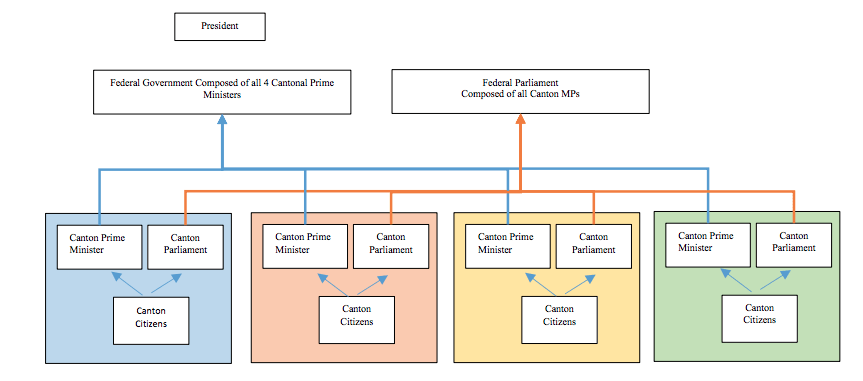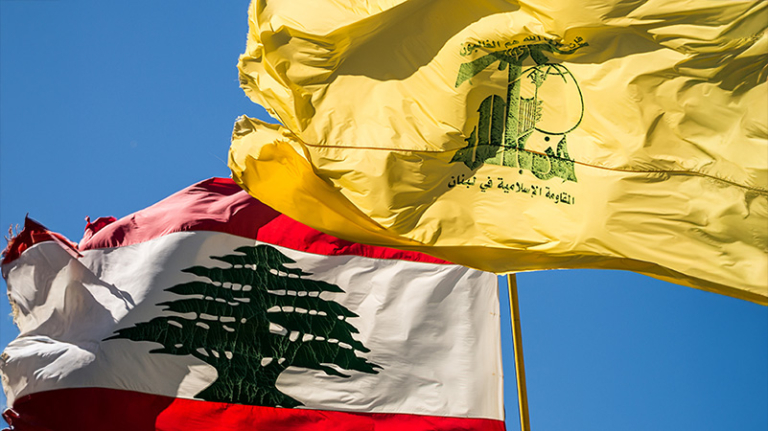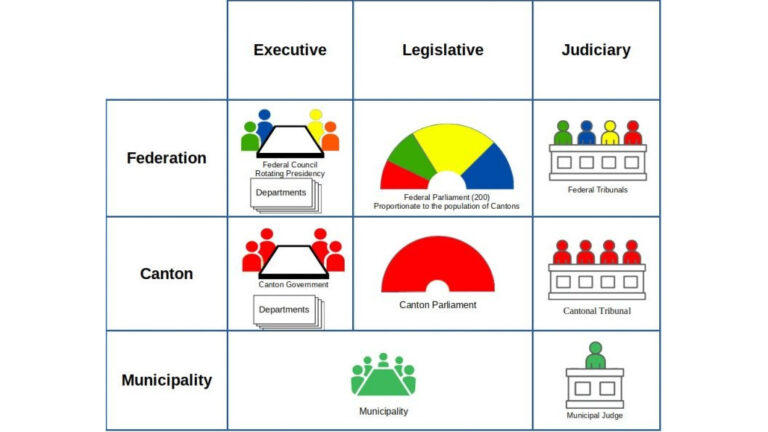Lebanon, in its current boundaries, houses four (4) different Ethno-Cultural Groups, namely: Sunni, Chiaa, Druse, and Christian. The result of which is a four (4) cantons federal country.
The Federal model has three (3) governance layers: Municipalities, canton/Region, and Federal. Within the Christian Ethno-Cultural Groups, there are several communities.All Lebanese Nationals shall also be canton Citizens (depending on the Group they belong to) and Municipal Residents (depending on their elected primary domicile). The political rights and obligations stem from the Lebanese Nationality, the cantonal Citizenship, and the Municipal Residency.
There are two (2) electoral colleges, one for the municipal elections and another for the cantonal elections.The Municipal Electoral College is based on residency (ie Municipal registration of residency), and therefore, all residents over eighteen (18) can participate as voters irrespective of their belonging to a particular Group.
The cantonal Electoral College, tasked with electing members of parliament as well as the cantonal prime minister, is comprised of all the men and women belonging to the relevant Group irrespective of their residency. Voters vote based on their “hometown” of birth. The system retained herein is two-round “uninominal” i.e. an electoral system that elects one Member of Parliament from each district (as redefined herein see maps attached).
The voting system is designed to elect a single winner where a second round of voting is used if no candidate wins an absolute majority in the first round (“scrutin uninominal majoritaire à deux tours”). For avoidance of doubt, all voters have to belong to one same Group (with possible accommodation within the Christian Group for positive discrimination to ensure representation of sub-Group sensibilities like Armenians, Orthodox, etc….).
cantonal elections are held to elect (i) cantonal Parliament and (ii) the canton Prime Minister. Parliament and the Prime Minister are elected for four (4) year terms.All four (4) canton Prime Ministers compose the Federal Government. And they choose the eldest among them to serve as the President of the Federation for one (1) year. The four (4) canton Prime Ministers rotate thereafter by age.
Parliamentarians of each canton compose the Federal Parliament. The President of the Federal Parliament is the president of the cantonal Parliament chosen by age (the eldest to the youngest) for a period of one (1) year.
Each canton is geographically delineated as being the aggregation of all the municipalities belonging to such canton. The Municipalities belonging to a canton are those whose native electors/residents at the time of the approval of this Basic Law compose at least 67% of that canton’s Ethno-Cultural Group.
A cantonal Citizen is a person belonging to the Ethno-Cultural Group of his canton irrespective of his Municipal Residency. The Municipal Resident is any resident of any municipality. Municipal Residents vote in the municipality in which they reside.Here are some basic indicative reference numbers. These will be firmed out once the maps and the statistical work is finalized.
- The number of canton MPs are proportionate to the overall population. It is expected to be around: [88] Christian, [70] Sunni, [75] Shiite, and [13] Druze.
- There should be 1 MP for each [15,000] inhabitants. For the rationale behind the suitable electoral law, see attached Appendix B.
Governance Schematic Overview

The above schematic describes the cantonal elections (i.e. per Group members) for legislative and executive powers. Another schematic will describe the vote of each residence in his municipality, such vote to happen based on residency and irrespective of the Group to which one belongs.



